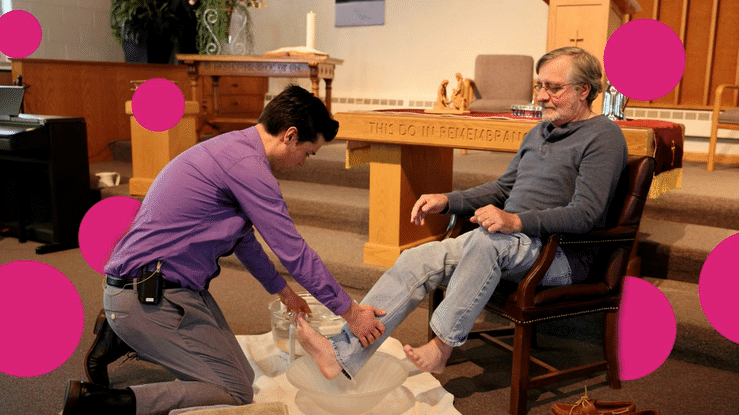
Written by Rev. Chris Bouma, Pastor at Ideal Park CRC
I have recently been making my way through Stephen Hawking’s book, “A Brief History of Time” (thank goodness it is the illustrated edition!) One discussed principle in this work is the vastness of our universe and the great emptiness that fills it. Most of our universe is considered to be a vacuum, defined as a space which contains nothing and longs to be filled with something. This is why those bristled, cleaning devices in our homes share that same name: they clean our floors by creating a vacuum of nothingness which invites the particles of dirt and debris off of our floor and into the empty nothingness created in the canister.
There is so much nothingness to fill.
I wonder if there are vacuums, empty spaces, within ourselves? Not in a physical way, but rather in our inner being. So often we seek to avoid emptiness in our lives: in fact, our vacuum-filling culture tells us to avoid such a condition at all costs. Wherever there is an empty space in my heart, in my mind throughout my day, I am told I can, and should, easily fill it. Scroll through my phone, stream the newest television series, eat some fast-food, buy a new product… All aimed at avoiding a vacuum-like condition in our inner self by filling it.
Interestingly enough, the Christian tradition invites us to create an intentional vacuum in our lives through the practice of fasting. Fasting is the practice of removing something from our lives for a period (i.e. food, television, cell phone, the list can go on). (As an aside If we’ve never practiced fasting or are curious to learn more, consider reading about Jesus’ assumption that his followers are fasting in Matthew 6:16 or the practice by the psalmist in Psalm 35:13, among other places in the Bible). If we should recall the aforementioned definition of a vacuum, it is a now empty space that longs to be filled. The intentional Christian practice of fasting has the same effect: it creates empty space in our lives which longs to be filled with something else.
“Fill it with what?” you may ask. What if we invite into this now empty space something fundamental to the Christian life: love for God and neighbor? Jesus himself invites his disciples in John 13:14-15 to a demonstration of foot-washing, a practice meant to remind them of what it is to fill their lives with love and service. This is not a comfortable thing, letting the Savior of the world handle my sweat and dirt-clung appendages. One of Jesus’ close friends, Peter, was aghast at the idea that The Christ would offer such a loving, yet lowly, service! And yet, as Jesus says to Peter, “Unless you let me wash you, you have no part with me” (John 13:8). Interestingly enough, Peter needed to be emptied, or vacuumed, of his pride before he could receive this love-filled washing from Jesus.
When we like Peter empty ourselves of what we think we need, and allow God to fill us with what we truly need, the cleaning begins. When we fast from pride, damaging practices, gossip, unhealthy habits, we find that a vacuum appears in our lives that needs to be filled. Maybe giving up a particular food helps you take up being thankful to God for that food in its absence from your life. Or perhaps giving up your social media time throughout the day creates more space to pray or call someone who needs an encouraging word. What if we created a vacuum in our shopping habits which creates the opportunity in our finances and time to help the most downtrodden within our community?
As we enter this season of Lent, Ideal Park Church is considering this two-fold task: fasting and loving service. As we fast, creating this vacuum, we are asking, “How does God want to fill this vacuum with a love for God and a love for each other.” Jesus offers a very visible picture of what this love looks like in the practice of foot washing. As a church, we took this literally and held a foot washing at our Sunday morning service just prior to the start of Lent to help us consider how we might fill our vacuumed lives with love and service for God and our community.
Be reminded and encouraged of this dual invitation from our Savior to empty ourselves (fasting) and to conversely be filled with a posture of Spirit-filled love for God and others (service). Know that God’s love is more than enough to fill the spaces we find empty and which we crave to be filled. These are not just practices for the Lenten season, but indeed for every day of the Christian life.
What might God do in the world should we choose to “give up” so that we could “take up” in the name of Jesus?
Might our world become a new Kingdom where God’s will is done?




Very nicely done.
Do all you do in the Name of the Lord